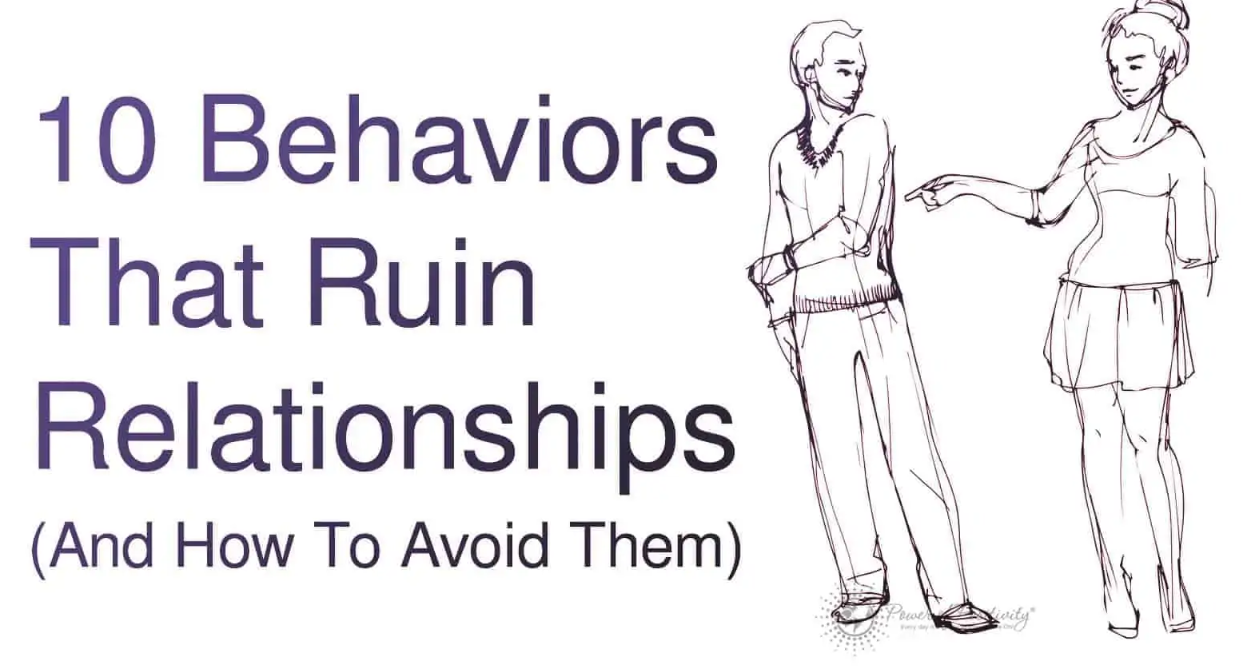At the beginning of a relationship, everything often feels blissful, and the excitement is palpable. But as time goes on, things can start to shift, and what once felt like pure love can be weighed down by life’s daily stressors. If you’re feeling that things just aren’t the same as they used to be, you might be wondering what’s changed. Relationships require effort, and certain behaviors—often unintentional—can erode the foundation of trust, respect, and love.
Here are ten behaviors that can damage relationships and how to avoid them to keep the love alive and strong.
1. Acting as If You’re Still Single
When you’re in a committed relationship, your actions impact your partner. Acting like you’re single—whether it’s making decisions without consulting your partner, going out without keeping them in the loop, or maintaining secrets—can be incredibly damaging. It gives off the impression that you’re not fully invested in the relationship.
How to Avoid It:
Commit to open communication. When you make plans or decisions, check in with your partner. Being in a relationship means you’re part of a team, and your actions should reflect that. If you’re not ready to be fully committed, it might be time to reassess whether you’re truly ready for a relationship.
2. Handling Finances as If You’re on Your Own
Money is one of the leading causes of tension in relationships. Spending as if you’re the only person to consider—without thought for shared responsibilities—creates resentment. Financial decisions should be made together, as a couple.
How to Avoid It:
Be transparent about your finances and include your partner in major spending decisions. Set financial goals as a couple and stick to a budget that works for both of you.
3. Losing Your Independence
While it’s important to build a life together, it’s equally important to maintain your individuality. When you lose sight of your interests, friendships, and personal goals, you risk becoming overly dependent on your partner, which can strain the relationship.
How to Avoid It:
Maintain your hobbies, friendships, and personal interests. It’s crucial to have time apart so that when you’re together, you can bring something fresh to the relationship. Balance is key—having your own life enhances your partnership.
4. Insecurity and Over-Sensitivity
Insecurity can lead to jealousy, mistrust, and unnecessary tension in a relationship. If you’re constantly questioning your partner’s actions or projecting past relationship fears onto them, it can cause friction.
How to Avoid It:
Work on building your self-esteem and trust in the relationship. If your partner hasn’t given you a reason to doubt them, recognize that your fears might stem from past experiences, not current realities. Open communication is essential to addressing these feelings.
5. Disrespectful Behavior
Rolling your eyes, being excessively sarcastic, or consistently belittling your partner are all forms of disrespect. This behavior erodes the emotional connection and can lead to resentment over time.
How to Avoid It:
Monitor your tone and language, especially during disagreements. Treat your partner with kindness and respect, even when tensions are high. If sarcasm is a regular form of communication, dial it back and focus on being constructive rather than hurtful.
6. Lack of Affection
Physical touch is a vital part of maintaining intimacy in a relationship. Over time, the physical connection can fade, but it’s crucial to keep it alive through small acts of affection like holding hands, hugging, and kissing.
How to Avoid It:
Make affection a priority in your daily life. Whether it’s a quick kiss before leaving the house or cuddling on the couch, these small gestures reinforce the bond between you and your partner.
7. Prioritizing Your Phone Over Your Partner
In today’s digital age, it’s easy to get lost in social media or constantly check your phone. But when you prioritize your device over meaningful time with your partner, it can create distance and a lack of communication.
How to Avoid It:
Set aside dedicated time to connect without distractions. Put your phone away during meals, while watching TV together, or before bed. Focus on engaging in real conversations with your partner, and make them feel valued.
8. Constant Nagging
Nagging is a repetitive cycle that wears down both parties. Constantly reminding or criticizing your partner for unmet expectations leads to frustration and can push them away.
How to Avoid It:
Address the issue directly and have an open conversation. Make sure your partner knows you’ve been heard, and come up with a plan to address the situation. Mutual understanding and compromise can help break the cycle of nagging.
9. Engaging in Compulsive Behaviors
When things aren’t going well, some people turn to compulsive behaviors like overindulging in shopping, food, alcohol, or even harmful habits like excessive porn use. These behaviors are often a sign of deeper emotional issues and can distance you from your partner.
How to Avoid It:
Acknowledge these behaviors and explore the reasons behind them. Talk openly with your partner about what’s causing you stress or unhappiness and seek help if needed. Compulsive behaviors won’t solve relationship problems—they only mask them.
10. Dishonesty
Lies, whether small or significant, can break the trust that relationships are built on. Dishonesty creates doubt and makes your partner question everything you say or do, leading to a breakdown in communication and emotional intimacy.
How to Avoid It:
Be honest with your partner, even when it’s difficult. Trust is the foundation of any relationship, and once it’s broken, it can be hard to rebuild. If you’ve been dishonest, take responsibility and work to regain trust through open communication and transparency.
Final Thoughts on Avoiding Behaviors That Sabotage Relationships
Relationships take work, but the rewards are well worth the effort. By identifying and correcting these behaviors, you can avoid damaging your relationship and instead focus on building a loving, supportive, and lasting connection. Remember that open communication, respect, and a willingness to grow together are essential to keeping any relationship strong and healthy.
